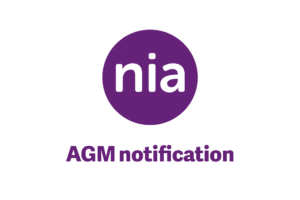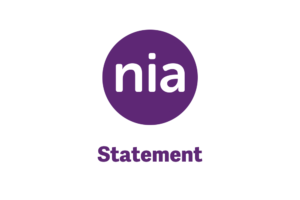Professor Liz Kelly, director of the Child and Women Abuse Studies Unit, and MA student Selma Taha, comment on the challenges faced by support services and frontline workers during the pandemic.
Selma Taha is the Acting Director of Operations at nia and undertook her MA research whilst working full time as the Advocacy Services Manager.
The pandemic, and in particular lockdowns, created unprecedented challenges for the specialist Violence Against Women and Girls (VAWG) sector. They had to pivot almost overnight to provide their support and advocacy services remotely.
The Child and Women Abuse Studies Unit tracked this process for over 50 groups across England as part of the evaluation and learning support team to the Lottery Women and Girls Initiative at the same time as Selma Taha, a Woman and Child Abuse Studies MA student, focused her dissertation on interviewing frontline workers in London.
Both studies found a profound sense of responsibility to women and girls, with many anxious about the potential for increased power and control as women and children were marooned at home with their abusers. At the same time, statutory services were less accessible, with many staff redeployed to respond to the pandemic.
This combination meant the VAWG sector went above and beyond, working longer hours, negotiating with local authorities to expand access to safe accommodation, extending helpline hours, and moving support groups onto virtual platforms. Additional funding enabled support to extend to food parcels, care packages, phone data and tablets.
Adaption was, however, not without challenges: access was limited by broadband quality in rural areas and the digital divide, and creating confidentiality online was complex. Demand for support increased in 2020-2021 with some women preferring remote access.
The interviews with frontline workers revealed a doubleness: supporting women around their concerns about Covid and isolation, their losses of friends and family members, whilst managing these very same issues for themselves. These fears were heightened for Black and minoritised women as data on the differential impacts of the virus emerged.
What has received limited attention to date are the consequences of the loss of the boundary between home and work for this group of workers: they were literally bringing trauma home. For some, the only private space they had was their bedroom – in which they were now supporting women about domestic and sexual violence. Many noticed that their commute to work, which they had previously resented, acted as a buffer between work and home, a space to unwind and let go of painful accounts.
New coping strategies emerged to create spaces that produced aspects of separation: only using work laptops and phones whilst on duty; crafting a screened space in the bedroom, going for a walk at the end of the working day. The organisations also increased support for workers, offering drop-ins and WhatsApp groups to replace the everyday consultation and debriefing that happened in offices.
An unanticipated finding was that for Black and minoritised workers the conjunction of Black Lives Matters protests, after the murder of George Floyd, and lockdown was a watershed moment. Not being in their everyday environments and having more time for reflection resulted in heightened awareness of their lived experiences of everyday racism. Working from home was 16 months of shielding from the microaggressions that many had become used to coping with.
The possibility of returning to offices and teams raised the spectre of having to put on their self-protective armour again: a ‘return to normal’ that was not relished. We have both had conversations with other women that echo this finding, but it has not been a topic of public commentary on the impacts of the pandemic.
This finding suggest that all organisations and workplaces, including London Met, need to recognise the specific needs and concerns of lack and minoritised staff returning to workplaces and how we might all create a new anti-racist normal.



